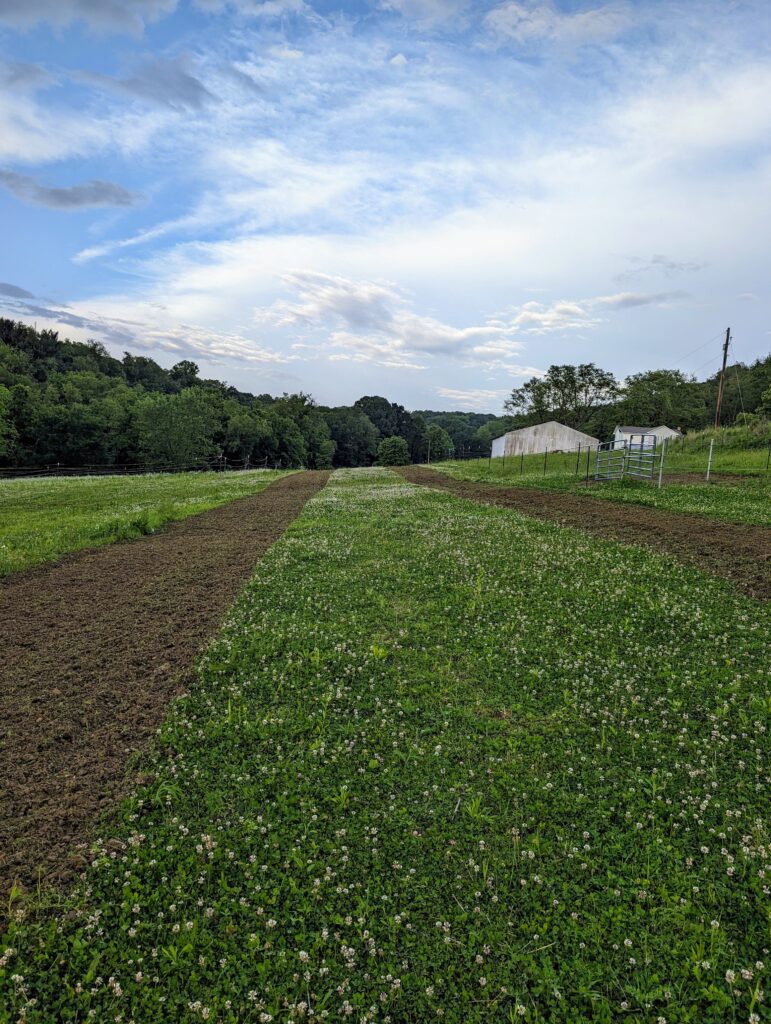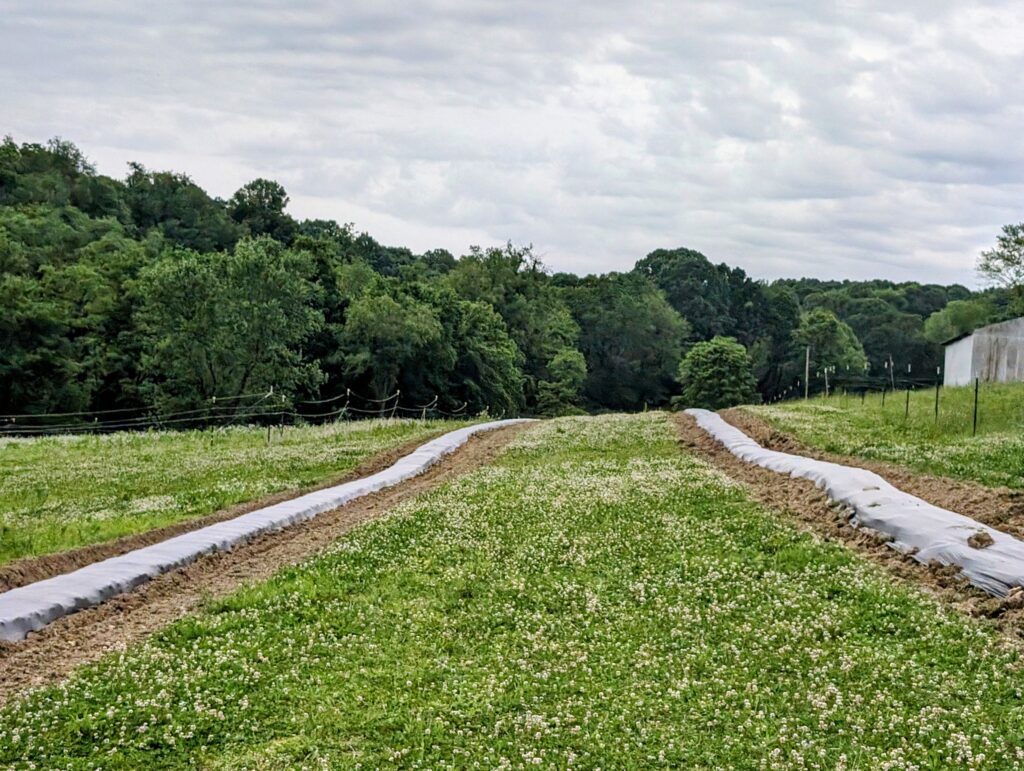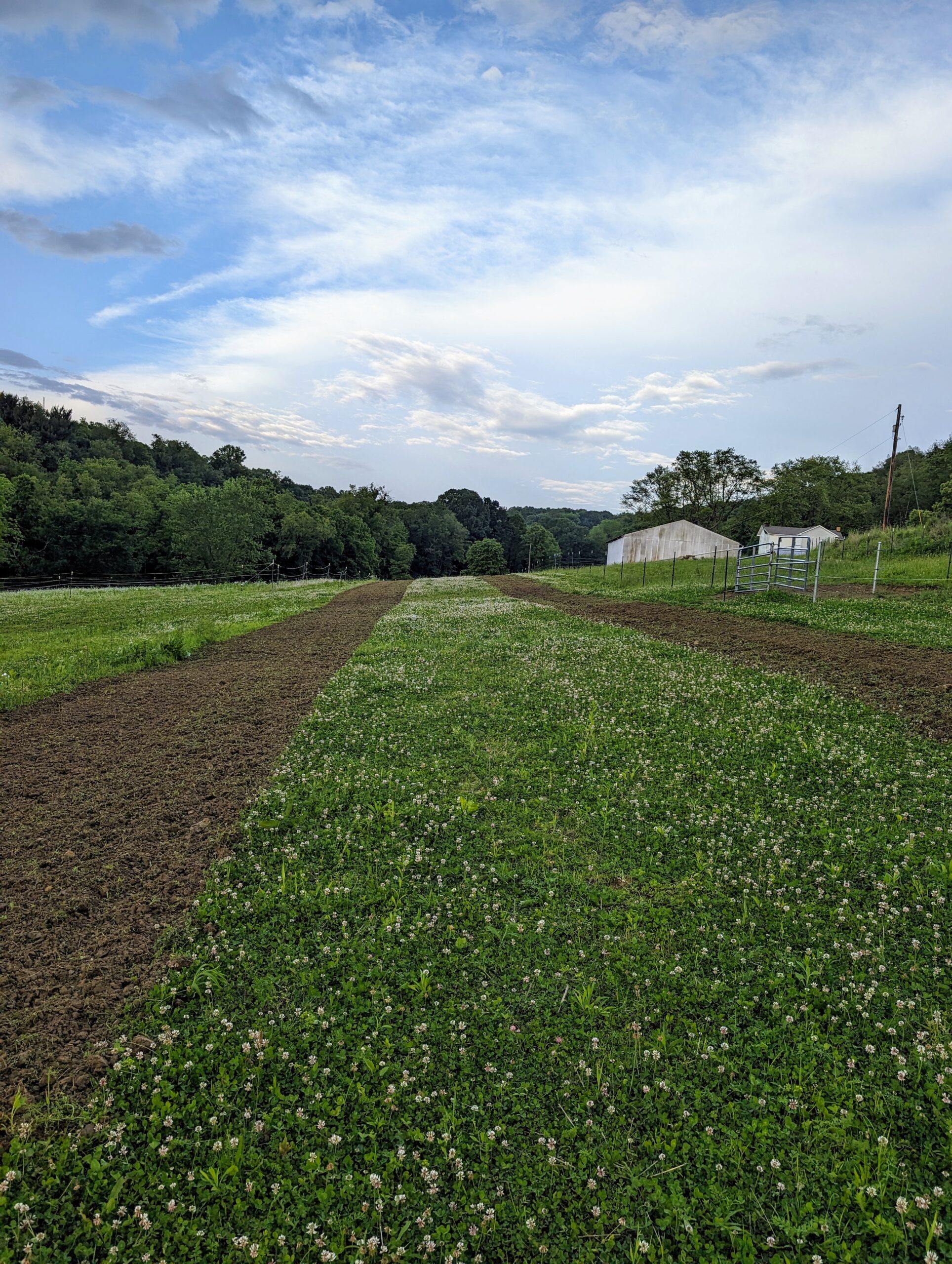Greetings from Stella Manor! As we traverse the peak of summer, it’s an opportune moment to reflect on the journey of 2024 at our organic farm in Bell Township, Westmoreland County, PA. This year marks the third year of our commitment to farming organically using regenerative methods, and it has been a season full of lessons and triumphs.

A Wet Spring and a Dry Summer
The weather has played a significant role in shaping our farming practices this year. We began the season with an unusually wet spring, which presented both challenges and opportunities. The abundant rainfall nurtured the seeds planted last year, setting the stage for a lush and productive growing season. However, as we moved into summer, the weather turned dry. Despite the lack of rain, our preparations and regenerative techniques have proven effective in maintaining soil health and crop vitality.
Clover and Oats: A Winning Combination
In the spring of 2023, we planted clover in oats, a strategy aimed at enhancing soil fertility and structure. By the time 2024 rolled around, this preparation had yielded a beautiful field of clover. The clover serves multiple purposes in our regenerative farming system. Its dense growth helps choke out weeds, reducing the need for herbicides and manual weeding. Additionally, clover is a fantastic cover crop that conserves soil moisture and adds nitrogen to the soil, benefiting future plantings.
Mulching Techniques
This year, we integrated rows of plastic mulch into the clover field. This approach has several benefits. The mulch helps retain soil moisture, which is particularly crucial during this dry summer. By cutting spaces between the mulch rows, we ensure that the clover remains short, further aiding in weed suppression and moisture conservation. As of July 23, we haven’t needed to water our crops, a testament to the effectiveness of our mulching and cover cropping strategies.

The Benefits of Clover in Regenerative Farming
Clover is more than just a weed suppressant; it’s a powerhouse in regenerative agriculture. Its ability to fix nitrogen in the soil naturally enriches the land, reducing the need for synthetic fertilizers. This not only cuts down on input costs but also promotes a healthier, more resilient ecosystem. The clover’s extensive root system improves soil structure, enhancing its ability to retain water and resist erosion.
Looking Ahead
As we continue through 2024, our focus remains on adapting and learning. The challenges posed by varying weather conditions underscore the importance of regenerative practices in building a sustainable and resilient farming system. We’re optimistic about the future and committed to refining our techniques to further enhance the health of our soil and the quality of our produce.
Stay tuned for more updates from Stella Manor as we navigate the rest of the growing season. Thank you for being part of our journey towards sustainable agriculture.
Feel free to visit our blog at regenerativeseed.com for more insights and updates on our farming practices and experiences.
Warm regards,
